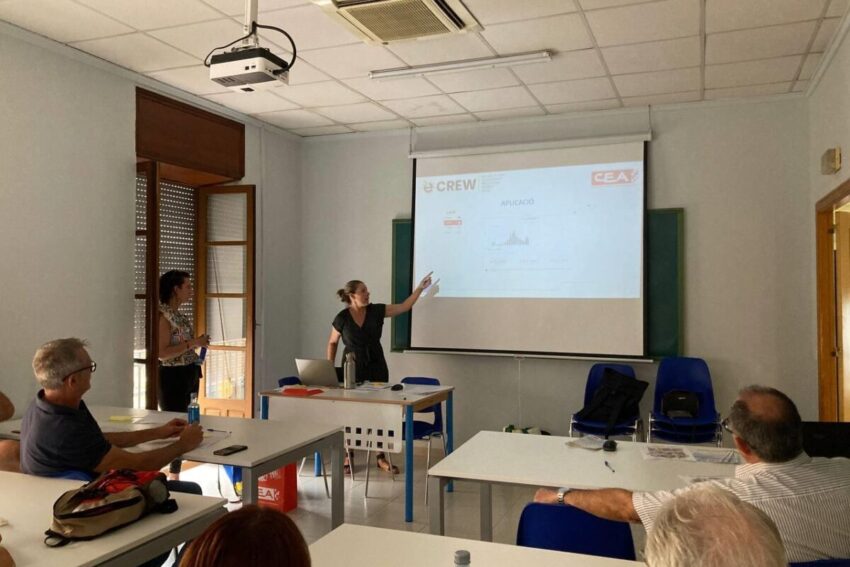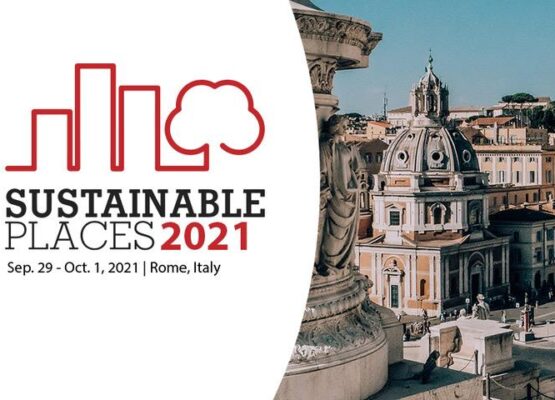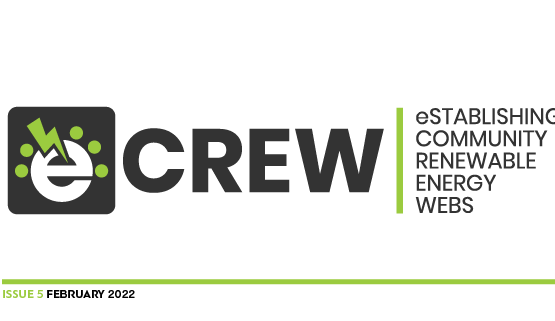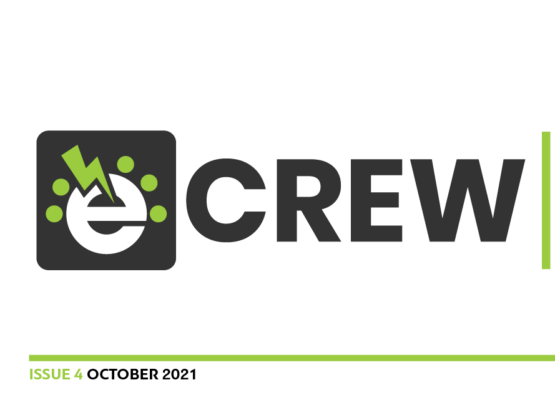On Tuesday 21st June an eCREW workshop in collaboration with another H2020 project, Lightness was held in Alginet lighthouse, Spain. The workshop was attended by 12 adults and 2 children. Here is a summary of the event from the organizers perspective.
INTRODUCTION
As an icebreaker and to assess the different levels of knowledge regarding energy communities from the participants, we started asking them to write what they understood by “energy community”.
From this first assessment we could realize there were different levels of knowledge, while some are very well informed and understand the concept of energy community well, for others the concept was not so clear. The second important point is that, as usual, people tend to understand an energy community as a collective self-consumption.
We have read the insights out loud and then we have read the definition from the EU Directives, to find common points and things that deviated from it. We have focused on highlighting that an energy community can be much more than just generating and sharing electricity from PV panels.
A game about sustainable development goals and some material about energy efficiency was provided for the kids. Other participants also took it home for their kids.
VALUES AND MOTIVATION OF THE ATTENDANTS
We entered in a debate about the strongest values which motivate engaging in energy communities, highlighting the benefits from this type of initiative. To do so, we asked them to compare it to the values and motivation they consider strongest drivers for them to be members of the cooperative. Some people mentioned that the economic value was the first motivator for them to be a part of the cooperative (referring to the past, when the prices were lower than the ones from the competing companies). Others mentioned they understand there are many advantages such as having local and in-person attention, the local social benefits (as an alternative from the big electric companies, who are focused in obtaining profit). The environmental aspect does not seem to be so strong.
STEPS FOR THE CREATION OF AN ENERGY COMMUNITY
Aiming to put in context and point out the many aspects the Alginet cooperative has in common with an energy community, we have shown the steps for forming an energy community and commented each point of the infographic below, opening the debate of which points are already being developed in some way by the cooperative and its members and in which ones more effort should be put to develop further or strengthen. Another important point which was highlighted is that the regulatory framework for ECs is still not completely developed.
From this, we have highlighted the possible activities to be developed by an energy community, mentioning all of them and seeing which are already activities from the cooperative.
This was very useful for people to have a broad view of requirements, diving a bit deeper than just providing definitions.
We also called attention to the fact that having a strong social base is key for the cooperative as an organization and is also essential for any new initiative. We emphasized that the member’s opinions and desires are very important to the cooperative and there are spaces (such as this one) where they can raise their voice.
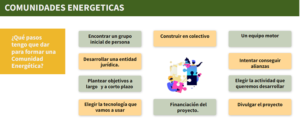
INDIVIDUAL AND COLLECTIVE SELF-CONSUMPTION
The H2020 Lightness project provided a short presentation about individual and collective self-consumption, to clarify the current possibilities and limitations (500m, different kind of meter, coefficients). Some specific questions about technical issues were raised. We emphasized they could come to the cooperative to solve individual questions or ask for support.
INTERESTING QUESTIONS THAT CAME UP DURING THE DEBATE
Some attendants wanted to understand how the European projects are included in the operation of the cooperative and what was the purpose of it. Some people intervened giving their understanding which was very accurate, mentioning things such as: learning from what is being done in Europe regarding energy citizenship, empowering citizens, small initiatives against the powerful big companies. For some it was clear they value projects like these and the efforts of the cooperative to inform, increase the consciousness and empower members.
One person was not aware the cooperative had an R&D department, responsible for participating in European projects. She suggested more dissemination was done among members (in written form since elderly people are not using social media). This is already being done by the cooperative, but it is possible that it does not reach a broad audience.
PEAK APP DEMO
The H2020 eCREW project showed to the attendants the Peak Application through a presentation.
The meter belonging to ADEE offices were displayed with the consumption and the feed-in to the grid, the different features were showed like the gamming part and the different consumption in KWH or CO2.
Also, we stated that they can join the App as a CREW and share knowledge, tips, and try to reduce their consumption together. We showed the different features, with the gamming part and the different consumption in Kwh or CO2 that the App shows comparing days, months, or years. People asked about prices, we explained that given the level of complexity of the energy tariffication in Spain this feature wouldn’t be available.
FOLLOW UP
We sent to the people that attended the workshop an email thanking them for participating in the event with the links to the projects webs and the presentations done in the event.

